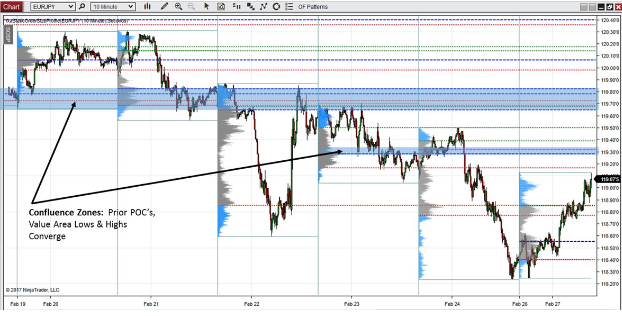At 11:39 pm the night watch spotted the iceberg just off the port side of the Titanic. They saw it from about a mile away, but by then it was too late. It was massive, bigger than most buildings, with a height of 100 feet and a length of around 300 feet depending on what account you read.
We all know the tragic outcome of that fatal April night in 1912. Every day, traders send their trades to a watery grave, never to be seen again – all because they’ve failed to see what’s sitting right in the path of a currency pair’s rate.
Fortunately, you can give yourself more visibility to the price levels where a rate will have no choice but to adjust course. Using value, you can plot these candidate entry points in just minutes – but change the course of your account forever.
TITANIC-LIKE ICEBERGS THAT MOST TRADERS MISS
It was born in Greenland and would be bigger than most buildings when it was fully formed. The iceberg that sunk the Titanic was mammoth, big enough to house its own neighborhood complete with grocery store, post office and bowling alley. It originated in the same place where 85% of the North Atlantic’s icebergs come from – the ice shelf in the Ilulissat.
A currency pair usually comes from one place – and one place only – institutional trading levels. It’s these levels that stand in the way of a currency pair’s rate, sending it either on its way sideways, upwards to the sky, or down to the bottom of a sea floor.
Unlike an iceberg in 1912, these institutional levels don’t just randomly surface in your rate’s path – they’re created by value zones. You can plot these directly to your chart and trade them for reversals.
USING CONFLUENCE TO SPOT RATE EXTREMES
If you had the misfortune of having to jump in the water, either that night or any night in the North Atlantic – you’d be meeting a temperature of about 28 degrees Fahrenheit. Just below freezing. At that temp, you’d have around ten minutes before going unconscious and dying – likely simultaneously.
With Forex entries, it’s not the cold water that will kill your trade. It’s the perfect lukewarm temp that will get you stopped out. This is because you’re looking for extremes. Currency rates are either super cold because they’re oversold, or overheated because they’re overbought. ‘Juuuust right’ Goldilocks, and your entry is likely right in the middle of institutional value zone.

Using value zones and confluence – you can spot these moments and take advantage of them for entries that a rate will respect. Check out the EUR/JPY. Using Static Order Size Profile, we’re able to see the value zones for each day. This tells us where the Value Area High (overbought) and Value Area Low (oversold) levels are for each day. It also delivers the POC – the Point of Control – where the most volume went down.
Where they come together and start to concentrate? That’s where you have confluence forming. An iceberg in the making. These are the opportunities to enter at an extreme and win.
A quick glance at both the levels and the confluence will tell you that rates react when they’re hit. Just like the Titanic and its unfriendly iceberg.
WIN REGARDLESS OF WHAT YOUR CURRENCY RATE CRASHES INTO
It’s worth noting that 1912 was an unusual year for icebergs. A whopping 1,038 were observed crossing the 48th parallel. This meant that the odds of hitting something were much higher. Although there are those who argue the ship should have missed the iceberg altogether had the captain maintained his speed.
Stop second-guessing and start improving your entries with one addition to your chart – confluence. Take a 10-day view of your daily profiles and look for concentrations of value areas. When you see prior POCs, VAHs or VALs merging together – you can bet that the rate will change course when it reaches that level.
When the rate hits, watch Order Flow Sequence Tracking for sequential decline and responsive activity. Those are the signs that there’s going to be a reversal and the rate is about to swing. Make your entry and keep an eye on any game-changing conditions that signify you should get out.
Win from rate crashes while everyone else heads for the lifeboat.
